2019 October 17

2019 October 17
Moons of Saturn Image Credit: Cassini Imaging Team, SSI, JPL, NASA
Explanation: On July 29, 2011 the Cassini spacecraft’s narrow-angle camera took this snapshot and captured 5 of Saturn’s moons, from just above the ringplane. Left to right are small moons Janus and Pandora respectively 179 and 81 kilometers across, shiny 504 kilometer diameter Enceladus, and Mimas, 396 kilometers across, seen just next to Rhea. Cut off by the right edge of the frame, Rhea is Saturn’s second largest moon at 1,528 kilometers across. So how many moons does Saturn have? Twenty new found outer satellites bring its total to 82 known moons, and since Jupiter’s moon total stands at 79, Saturn is the Solar System’s new moon king. The newly announced Saturnian satellites are all very small, 5 kilometers or so in diameter, and most are in retrograde orbits inclined to Saturn’s ringplane. You can help name Saturn’s new moons, but you should understand the rules. Hint: A knowledge of Norse, Inuit, and Gallic mythology will help.
∞ Source: apod.nasa.gov/apod/ap191017.html
More Posts from Jmsconn and Others

Wide-Field Ellipse










Solar System










We were founded in New Taipei, Taiwan in 2005. We are a professional manufacturer of automotive diagnostic wires(OEM,OBM,ODM). For customers, we adhere to the principle of customer supremacy and strive to meet the requirements as a business philosophy. With professional technical strength, flexible production operation, and responsible and active attitude, we ensure that products gallop at high speed in the transmission of information, so as to ensure that customers can continuously get the greatest satisfaction while using the product.
www.vobd.com.tw

Mammoth Hot Springs Mammoth Hot Springs - Impressed by the rock formations and their colors – white, yellow, gold, and orange! All these colors are due to the presence of bacteria and algae that flourish in the extremely hot waters of the springs. Over thousands of years they have formed terraces called travertine formations - Rain waters seep into the rocks, and once they reach a certain depth, they are heated by the action of boiling magma. They rise back to the surface of the earth. The waters at Mammoth Hot Springs are not expelled into the air. They cross the rocks up and deposit limestone sediments on the surface. The warm waters slowly flow from one basin to another, forming terraces as shown in the picture. It flows over some white limestone and orange travertine deposits. Mammoth Hot Springs is “journey to the center of Earth”, but outdoors!

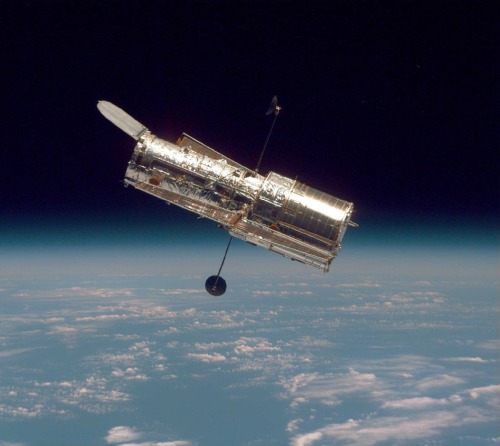
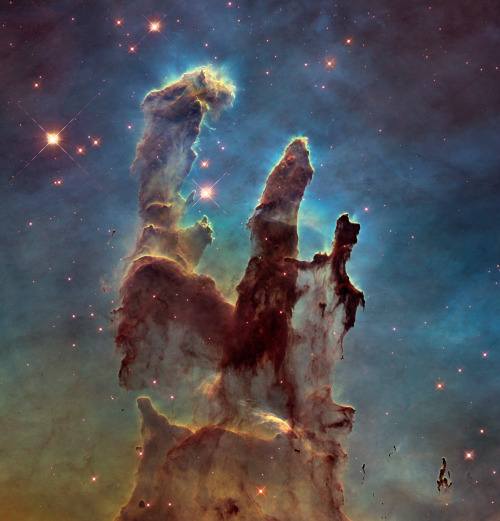
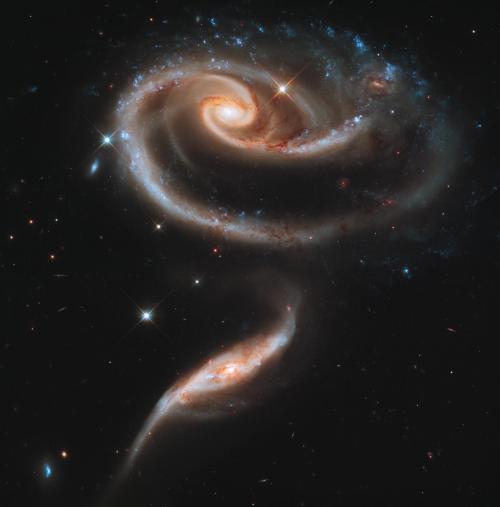
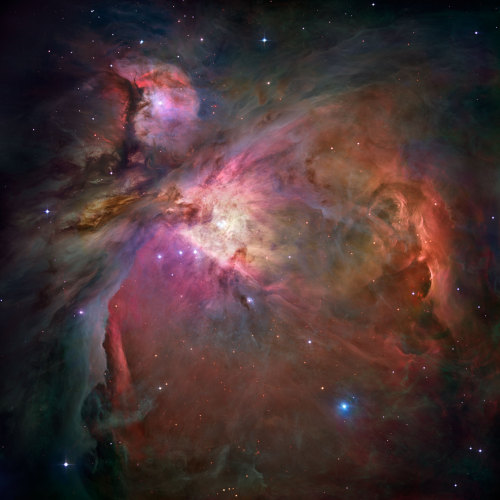
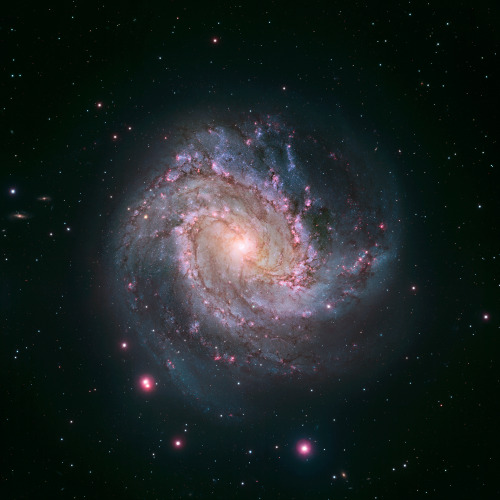
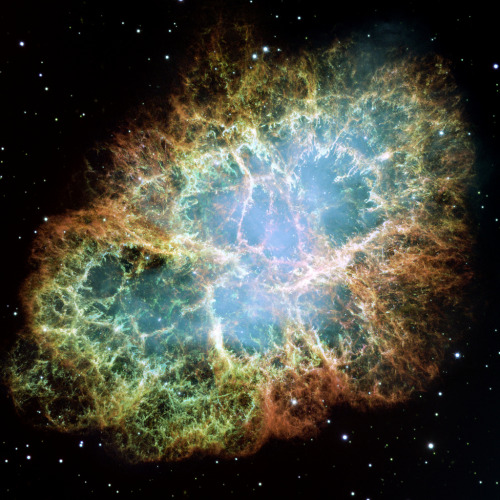
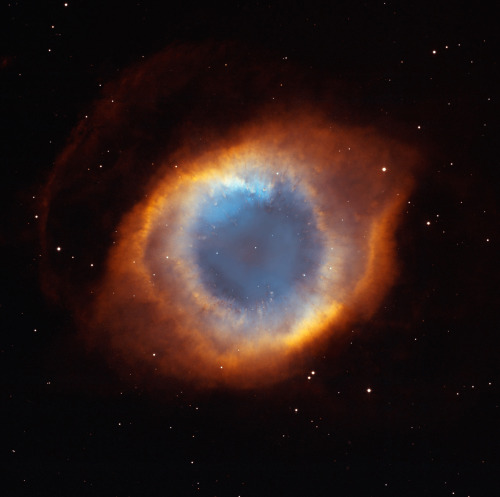
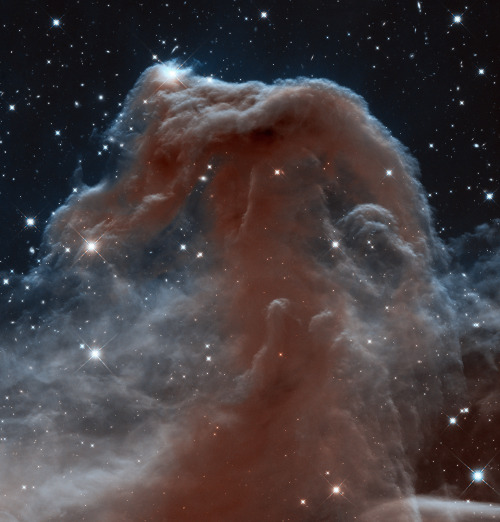

Happy Birthday, Hubble!
The Hubble Space Telescope (HST) is a space telescope that was launched into low Earth orbit in 1990 and remains in operation. Although not the first space telescope, Hubble is one of the largest and most versatile, and is well known as both a vital research tool and a public relations boon for astronomy. The HST is named after the astronomer Edwin Hubble, and is one of NASA’s Great Observatories, along with the Compton Gamma Ray Observatory, the Chandra X-ray Observatory, and the Spitzer Space Telescope.
With a 2.4-meter (7.9 ft) mirror, Hubble’s four main instruments observe in the near ultraviolet, visible, and near infraredspectra. Hubble’s orbit outside the distortion of Earth’s atmosphere allows it to take extremely high-resolution images, with substantially lower background light than ground-based telescopes. Hubble has recorded some of the most detailed visible light images ever, allowing a deep view into space and time. Many Hubble observations have led to breakthroughs in astrophysics, such as accurately determining the rate of expansion of the universe.
sourcet: Wikipedia & Overview
Image credit: NASA/ESA & Hubble
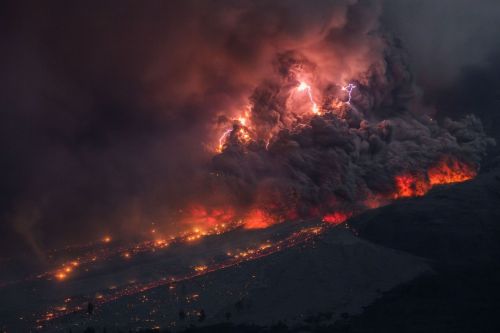
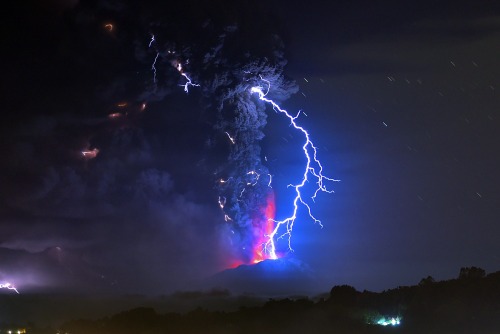
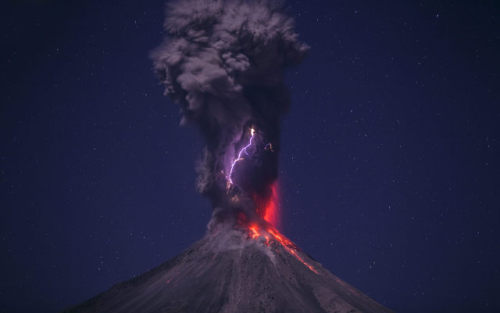
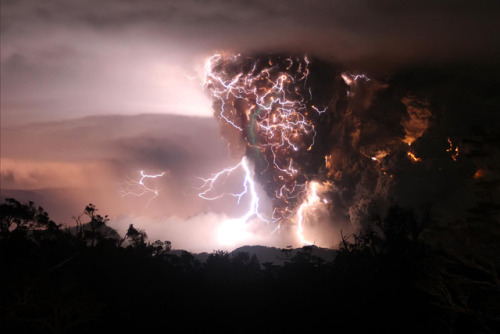
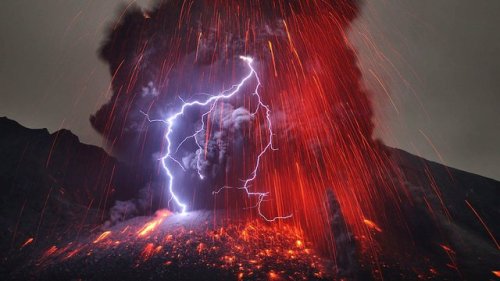
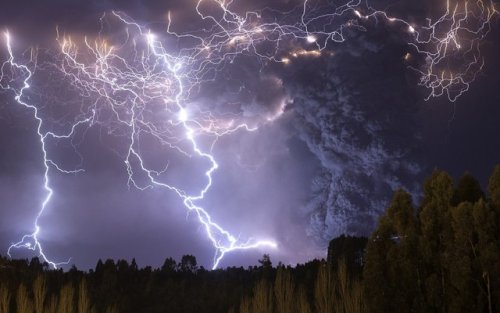
Dirty thunderstorm
A dirty thunderstorm (also volcanic lightning, thunder volcano) is a weather phenomenon that is related to the production of lightning in a volcanic plume.
A study in the journal Science indicated that electrical charges are generated when rock fragments, ash, and ice particles in a volcanic plume collide and produce static charges, just as ice particles collide in regular thunderstorms.
Volcanic eruptions are sometimes accompanied by flashes of lightning. However, this lightning doesn’t descend from storm clouds in the sky. It is generated within the ash cloud spewing from the volcano, in a process called charge separation.
source
images


This is a photo of the small island of Litla Dimun which is situated between Suouroy and Stora Dimun in the Faroe Islands. It is the smallest of the Islands being less than 100 hectares (250 acres) in size and it is uninhabited. The island is often covered by lenticular clouds. Lenticular clouds, also known as altocumular standing lenticularis clouds, are formed when a current of moist air is forced upwards as it travels over elevated land. This elevation and subsequent decrease in temperature causes the moisture in the air to condense and form a cloud. Lenticular clouds appear to be perfectly stationary but in fact this is not the case. These clouds only appear stationary because the flow of moist air continually resupplies the cloud from the windward side even as water evaporates and vanishes from the leeward side. Lenticular clouds can look like they are hovering for hours or days, until the wind or weather changes and the clouds disperse. They also look like a hat! -Jean Photo courtesy of Caters news agency.
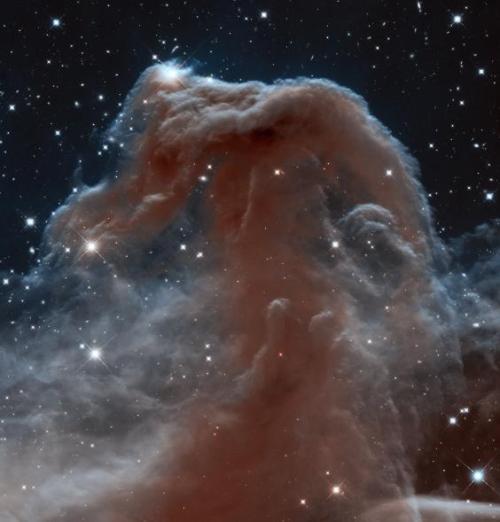
Known as the Horsehead Nebula – but you can call it Starbiscuit.
Found by our Hubble Space Telescope, this beauty is part of a much larger complex in the constellation Orion.
Make sure to follow us on Tumblr for your regular dose of space: http://nasa.tumblr.com.
-
 softskyburial reblogged this · 5 years ago
softskyburial reblogged this · 5 years ago -
 photodigitalart liked this · 5 years ago
photodigitalart liked this · 5 years ago -
 beforevenice liked this · 5 years ago
beforevenice liked this · 5 years ago -
 reddog1984 reblogged this · 5 years ago
reddog1984 reblogged this · 5 years ago -
 thejordix reblogged this · 5 years ago
thejordix reblogged this · 5 years ago -
 bluestaratsunrise reblogged this · 5 years ago
bluestaratsunrise reblogged this · 5 years ago -
 bluestaratsunrise liked this · 5 years ago
bluestaratsunrise liked this · 5 years ago -
 ammon-rah liked this · 5 years ago
ammon-rah liked this · 5 years ago -
 wachsurfer2018 liked this · 5 years ago
wachsurfer2018 liked this · 5 years ago -
 immano liked this · 5 years ago
immano liked this · 5 years ago -
 kaylwrighty liked this · 5 years ago
kaylwrighty liked this · 5 years ago -
 mega-tabata77 liked this · 5 years ago
mega-tabata77 liked this · 5 years ago -
 heraclito71 liked this · 5 years ago
heraclito71 liked this · 5 years ago -
 dameonly reblogged this · 5 years ago
dameonly reblogged this · 5 years ago -
 dameonly liked this · 5 years ago
dameonly liked this · 5 years ago -
 tclhb liked this · 5 years ago
tclhb liked this · 5 years ago -
 curiokhan0113 liked this · 5 years ago
curiokhan0113 liked this · 5 years ago -
 itsloriel liked this · 5 years ago
itsloriel liked this · 5 years ago -
 jerzee55z liked this · 5 years ago
jerzee55z liked this · 5 years ago -
 clawedrockdawg liked this · 5 years ago
clawedrockdawg liked this · 5 years ago -
 steviedegrae reblogged this · 5 years ago
steviedegrae reblogged this · 5 years ago -
 steviedegrae liked this · 5 years ago
steviedegrae liked this · 5 years ago -
 nutritiousone liked this · 5 years ago
nutritiousone liked this · 5 years ago -
 born-to-be-triple liked this · 5 years ago
born-to-be-triple liked this · 5 years ago -
 thejordix reblogged this · 5 years ago
thejordix reblogged this · 5 years ago -
 thiswindyplace liked this · 5 years ago
thiswindyplace liked this · 5 years ago -
 ladygardenblues reblogged this · 5 years ago
ladygardenblues reblogged this · 5 years ago -
 ladygardenblues liked this · 5 years ago
ladygardenblues liked this · 5 years ago -
 awonderingliz reblogged this · 5 years ago
awonderingliz reblogged this · 5 years ago -
 saltythexfilesindianjonescop liked this · 5 years ago
saltythexfilesindianjonescop liked this · 5 years ago -
 bibliophiliosaurus reblogged this · 5 years ago
bibliophiliosaurus reblogged this · 5 years ago -
 thirdman000 reblogged this · 5 years ago
thirdman000 reblogged this · 5 years ago
